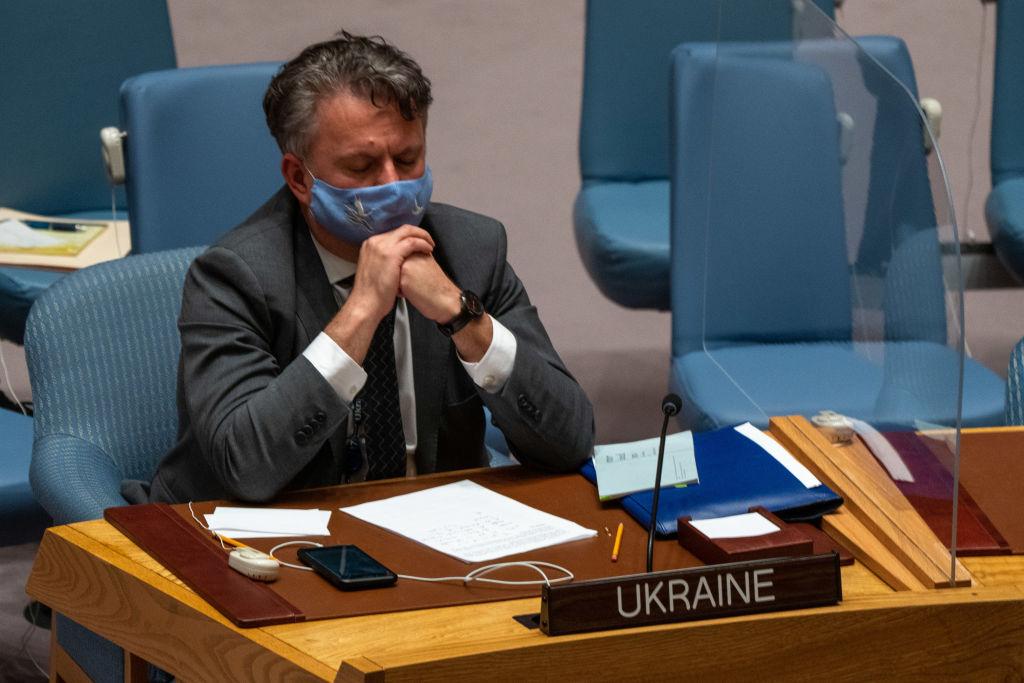Russia’s invasion of Ukraine another blow to the rules-based order
Posted By Daniel Steedman on February 24, 2022 @ 18:04

Russian President Vladimir Putin’s decision to invade Ukraine is another blow to the rules-based international order. It is an illegal act against a sovereign state and an attempt to reorient the global balance of power away from the United States. It may well work. It will embolden other states to pursue their own revisionist objectives.
Born of the ashes of World War II in Europe and Asia, the rules-based international order, underwritten largely by American power, is today unravelling in the same regions. Russia seeks to reassert its power and influence in Europe. China under President Xi Jinping seeks the same in Asia, perhaps even beyond. Recent developments indicate [1] that Moscow and Beijing now openly support each other’s agendas.
Xi will forensically examine the American-led response to Russia’s incursion. Does President Joe Biden’s administration have the mettle to resist attempts to rewrite the global rulebook? The answer remains to seen.
Nevertheless, the world has entered a new era of great-power rivalry driven by Russia and China.
Xi and Putin share two key ambitions. The first is to restore their respective nations’ historical claims to great-power status. The second is to cement their individual legacies.
The recent joint statement on international relations [2] issued by China and Russia suggests, significantly, that they’re moving closer. They don’t have a formal alliance, but their objective is to move the global balance of power.
Putin has long been nostalgic for the days of Soviet power [3] and the Russian empire that predated it. His foreign policy is geared accordingly.
The US has unwittingly assisted. Successive administrations, distracted with other global issues, have not deterred Putin’s ambition. His action against Georgia in 2008, followed by the partial, and ongoing, annexation of Ukraine shows no respect for American power or the sovereignty of neighbouring states. He explicitly uses his own historical narrative to legitimise [4] his revisionist strategic objectives.
To that end, with two draft agreements issued by Russia [5] in December, he wants to rewrite the rules for NATO and the US in Europe. But Putin is not alone in reinterpreting history to validate foreign policy.
Xi has two similarly rooted key strategic objectives. The first is to bring Taiwan into the People’s Republic of China [6]. There’s no telling when that might happen.
The second is to reinforce Chinese claims over much of the South China Sea [7]. For the past decade China has been steadily militarising the region.
As Beijing’s ability to project power in the region develops, it will become more difficult to check. China wants to replace the US as Asia’s leading power and is increasingly flexing its muscles [8] further afield.
Hard power is en vogue.
The result is a new era of escalating great-power rivalry. There’s little evidence the US is willing, or even able, to slow it down. The unipolarity Washington enjoyed in the 1990s is not coming back anytime soon. And with strategic rivalries come ample opportunities for miscalculations, misinterpretations and accidents that may lead to war.
Great-power war is inextricably tied to the existential threat of nuclear weapons. They weigh upon every strategic gambit undertaken by the states possessing them [9]. Putin’s strategic weapons drills days ago [10] were no coincidence. It was a reminder of Russia’s strategic potency.
If the conflict in Ukraine spills further into Europe it will drag NATO in. Then the world would face the prospect of an unprecedented war involving at least four nuclear-weapon states: the US, Russia, the UK and France.
Similarly, any confrontation between China and the US has a very real danger of escalating to the point of nuclear exchange. This is illustrated by the 1962 Cuban missile crisis.
Any war directly pitting the US against Russia, or China, would be catastrophic. The US refuses to send forces [11] into Ukraine; the price is too high. The first rule of international relations is survival of the state. Washington will not sacrifice New York for Kyiv.
History demonstrates, repeatedly, that controlling the course of war is impossible. The prospect of great-power war is nightmarish. But it could happen.
This brings us to a delicate and dangerous impasse and the emergence of a bifurcated international system—one half adhering to the rules-based international order and the other half seeking to overturn it.
It marks the return of zero-sum competition. It will become more difficult for states to find consensus on pressing global issues such as climate change and nuclear non-proliferation. Global institutions, notably the United Nations Security Council, will be less effective.
The outlook is murky and incredibly complicated. Much of the world looks to Washington to check aggressive moves by belligerent powers. However, the US will be unwilling to step into a military conflict with either Russia or China unless it is directly threatened. So, the rivalries will intensify and the international system of the past seven decades will continue to slip away.
Article printed from The Strategist: https://aspistrategist.ru
URL to article: /russias-invasion-of-ukraine-another-blow-to-the-rules-based-order/
URLs in this post:
[1] Recent developments indicate: https://www.aljazeera.com/news/2022/2/4/chinas-xi-to-meet-russias-putin-ahead-of-olympics-opening-rites
[2] joint statement on international relations: http://en.kremlin.ru/supplement/5770
[3] long been nostalgic for the days of Soviet power: http://news.bbc.co.uk/2/hi/4480745.stm
[4] explicitly uses his own historical narrative to legitimise: https://www.nytimes.com/2022/02/21/world/europe/putin-speech-transcript.html
[5] two draft agreements issued by Russia: https://abcnews.go.com/International/russia-makes-sweeping-demands-security-guarantees-us-amid/story?id=81821816
[6] bring Taiwan into the People’s Republic of China: https://www.reuters.com/world/china/chinas-xi-says-reunification-with-taiwan-must-will-be-realised-2021-10-09/
[7] claims over much of the South China Sea: https://www.npr.org/2021/02/09/965766489/u-s-carriers-train-in-south-china-sea-in-likely-signal-to-beijing
[8] flexing its muscles: https://www.nytimes.com/2017/07/25/world/europe/china-russia-baltic-navy-exercises.html
[9] states possessing them: https://sipri.org/media/press-release/2021/global-nuclear-arsenals-grow-states-continue-modernize-new-sipri-yearbook-out-now
[10] strategic weapons drills days ago: https://www.dw.com/en/vladimir-putin-presides-over-russian-missile-drills/a-60831388
[11] US refuses to send forces: https://www.youtube.com/watch?v=Z0jLfy7bk5k
Click here to print.